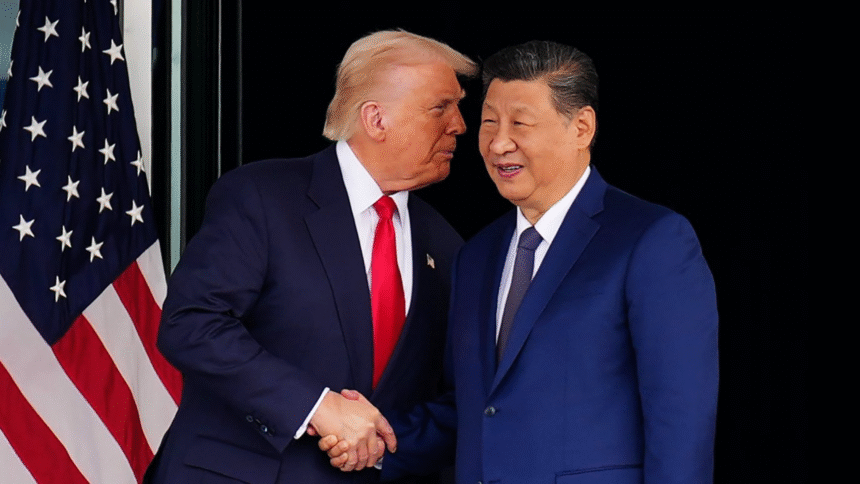U.S. President Donald Trump has hailed his face-to-face meeting with Chinese President Xi Jinping as a “great success,” announcing an agreement to reduce tariffs on China and to sign several new trade deals, Associated Press reported.
Speaking to reporters aboard Air Force One, Trump said that the United States will cut tariffs imposed earlier this year on Chinese goods — originally set as punishment for the sale of chemicals used in producing fentanyl — from 20% to 10%.
According to Trump, this move brings the overall tariff rate on China down from 57% to 47%.
“On a scale from 0 to 10, with 10 being the best, I’d say this meeting was a 12,” Trump said. “I think it was a 12.”
The American president noted that Beijing has pledged to resume imports of U.S. soybeans and allow the export of rare earth elements, crucial for high-tech manufacturing. He also announced plans to visit China in April, while Xi is expected to visit the U.S. later in the year.
The 100-minute meeting, held in South Korea, also covered potential cooperation on advanced computer chip exports to China. Trump revealed that Nvidia would begin direct talks with Chinese officials soon.
“We could sign a trade deal very quickly,” Trump said. “There aren’t many big obstacles left.”
Despite Trump’s optimism, Associated Press noted that tensions between the world’s two largest economies remain, as both countries continue to compete for dominance in manufacturing, artificial intelligence, and global influence — including over issues like the war in Ukraine.
Trump’s aggressive tariff policies since his return to the White House, combined with China’s restrictions on rare earth exports, gave this meeting a renewed sense of urgency.
Both sides, analysts say, are aware that further escalation could endanger the global economy and their national interests.
At the start of the meeting, Xi delivered a prepared statement emphasizing the need for cooperation despite differences:
“Given our different national conditions, it’s normal that we don’t always agree,” Xi said through a translator.
China’s state agency Xinhua echoed that sentiment, stating that “differences between the world’s two major economies are inevitable.”







